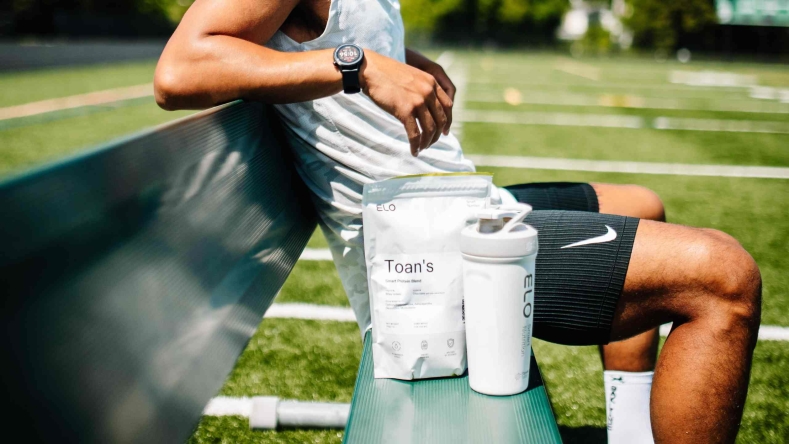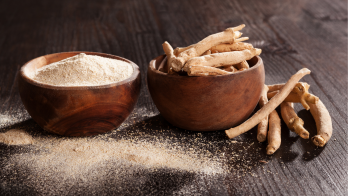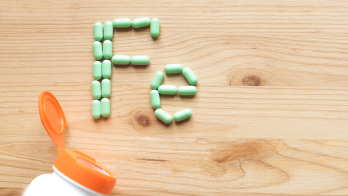Can runners have too much protein?
Protein is essential for endurance runners, but can you have too much of a good thing? Discover the potential drawbacks of excessive protein intake and how to strike the perfect balance for peak performance and overall well-being.

"Go the extra mile" is a motto many long-distance runners embrace. While tweaking your training, diet, and recovery routine can help you push your running performance to new heights, it is possible to have too much of a good thing —particularly when it comes to protein.
In this article, we’ll explore the downsides of having too much protein and help you determine how much you need to maximize your performance and recovery. Before diving into those details, let’s first review what protein is and why it’s important for endurance runners.
What is protein?
Protein is an essential macronutrient comprised of 20 different amino acids, nine of which are considered "essential." These essential amino acids hold significant importance because the body cannot synthesize them, meaning they must come from your diet. These amino acids are the fundamental building blocks of tissues (including organs, bones, muscles, tendons, cartilage, ligaments, and skin), hormones, enzymes, and red blood cells.
Amino acids are also necessary for stimulating muscle protein synthesis, which is a critical part of post-run recovery and maximizing training gains.
How much protein do runners need?
Research continues to show that getting the right amount of protein can enhance performance and body composition while minimizing muscle damage and aiding recovery.
To help determine how much protein you need as an endurance runner, the Dietary Guidelines for Americans recommends having 10-35% of your daily caloric intake come from protein sources [ 7
For athletes engaged in moderate amounts of intense training: Experts recommend 1.2–2.0 g/kg/day of protein [
2
].Athletes involved in high-volume, intense training (2 or more hours/day, 5-6 days/week) may need upwards of 1.7–2.2 g/kg/day [
2
].
While it’s true that the longer, harder, and more often you run, the more protein you need, consuming too much can be counterproductive. Let’s take a closer look at the potential pitfalls of getting too much protein.

How Elo Smart Recovery can help meet your recovery needs
If you’re wondering how to meet your increased protein needs while not overlooking other key nutrients in your diet, Elo Health
Elo Smart Recovery
Smart Recovery membership also includes unlimited access to a registered dietitian and real-time dosing recommendations based on your latest tracked workout via the Elo App. Unlike other personalized protein products, Elo Smart Recovery evolves as your goals and needs change through continuous feedback loops.
Check out this article to learn more about Smart Recovery 30% off your first month with code TRY30
What does too much protein do?
Protein is essential for muscle repair, recovery, and performance; however, many athletes are surprised to learn that consuming too much can negatively affect their performance, recovery, and overall health [ 1
Imbalanced macronutrient intake
One of the most likely consequences of consuming too much protein is an imbalance in the intake of other macronutrients, specifically carbohydrates and fat [ 1
Runners who focus too much on protein may inadvertently slash their intake of carbohydrates, the primary source of fuel for fueling endurance exercise. Without enough carbs, your performance will plummet, and your body will take significantly longer to recover between workouts [ 10 2
Consuming too much protein can also affect your fat intake, particularly if you eat many animal protein foods high in saturated fat [ 1 3
Nutrient gaps and deficiencies
A diet that leans too heavily on protein foods may also limit your intake of other essential nutrients in a well-balanced diet. Fruits, vegetables, nuts, seeds, legumes, and whole grains provide crucial vitamins, minerals, fiber, healthy fats, and antioxidants to support your performance, recovery, and overall health [ 1
Not getting enough of these nutrients from your diet can create nutrient gaps and deficiencies that affect your overall health and athletic performance.
With Elo Smart Recovery, you will receive a variety of boosts that can help to offset any deficiencies. Functional boosts, like supergreens, turmeric, and probiotics, can help offset nutritional gaps in your diet and support your long-term health goals. As such, your custom blend will be unique to you. Learn more about what boosts can be added to your custom blend in this article.
Weight gain
Studies show that consuming too much protein can contribute to weight gain over time if your calorie intake exceeds your energy expenditure [ 4
In a sport like distance running, where a lower body mass index (BMI) seems important, even gradual weight gain could hinder running performance [ 5
Increased kidney workload
One of the kidney's primary functions is the elimination of urea and other byproducts formed by the breakdown of dietary protein. For healthy adults, it is considered safe to consume protein at a rate of 2 g/kg/day over an extended period. Well-adapted individuals can go up to a maximum of 3.5 g/kg/day without any adverse effects; however, chronic intakes above 2 g/kg/day will increase the workload on your kidneys and may lead to digestive, renal, and vascular problems [ 11
While higher protein intake and kidney function don’t appear to be an issue for healthy individuals, it can be problematic if you have impaired kidney function, such as with chronic kidney disease [ 1
Digestive upset
From bloating and gas to diarrhea and constipation, consuming large amounts of protein can also have unpleasant digestive side effects.
High-fat protein foods (like processed meats or fried chicken) can increase your chance of diarrhea, particularly if you eat them too close to a run. Consuming dairy products can also lead to loose stools if you're lactose intolerant. Limiting your protein intake 2 hours before a run may help minimize your risk of developing GI symptoms during exercise.
If you don’t stay well hydrated and include enough fiber-rich carbohydrates in your diet, constipation might also become a problem. Increasing your water and fiber intake can help keep things moving if you’re experiencing constipation from a high-protein diet.
Increased heart disease risk
Research indicates that eating too much protein may put you at increased risk for heart disease down the road. Many high-protein animal foods (including red and processed meats and full-fat dairy) are high in saturated fat. Over time, eating too much saturated fat can raise "bad" LDL cholesterol, which is associated with a greater risk of heart disease and stroke [ 6

Tips for runners to optimize protein intake
Whether you’re training for your first 10K or an ultramarathon, honing in on your protein intake will support your overall health and running performance. Here are some tips for optimizing your protein intake to support your health and fitness goals.
Get enough, but not too much protein. Experts recommend moderately active athletes consume 1.2–2.0 g/kg of protein daily, while those engaged in intense training may need up to 2.2 g/kg/day [
2
].Time your intake. Avoid eating large amounts of protein less than 2 hours before a run to minimize the chance of tummy troubles. Get 20-40 g of quality protein within 1 hour of a finishing run to maximize your
post-workout recovery
[8
].Elo Smart Recovery
is a convenient post-run protein that also helps you rehydrate and refuel worked muscles.Prioritize protein quality. To keep your heart healthy, limit your saturated fat intake and focus on high-quality lean protein foods like seafood, lean meat, poultry, eggs, dairy, tofu, beans, peas, and lentils. These foods contain essential amino acids and other important nutrients and should make up most of your protein intake [
7
].Balance it out. Make sure to incorporate plenty of fruits, vegetables, whole grains, and healthy fats into your diet to ensure you’re getting enough fiber, vitamins, minerals, omega-3s, and protective antioxidants.
Keep your eye on calcium. Getting enough calcium from foods (1,000 mg/day or 1,200 mg/day for women over 50) during periods of higher protein consumption can help ensure your bones remain strong and healthy [
9
].
Other protein and running articles you might like
Summary
Whether you're a recreational runner or a marathon maven, knowing how much protein you need is critical, as too much or too little can impede performance and overall health. Studies have found that consuming excessive amounts can negatively affect athletic performance and overall health due to potential nutrient imbalances, weight gain, digestive upset, increased demands on the kidney, and a greater risk of heart disease.
As a runner, you can optimize your protein intake and boost performance by focusing on protein quality, nutrient timing, eating a balanced diet, and possibly taking a protein supplement (such as Elo Smart Recovery
Disclaimer: The text, images, videos, and other media on this page are provided for informational purposes only and are not intended to treat, diagnose, or replace personalized medical care.
Key takeaways
Consuming too much protein can lead to imbalanced nutrient intake, compromising performance, recovery, and overall health. It can also lead to weight gain, negatively impacting a runner's performance and body composition.
Consuming excessive protein can increase the workload on the kidneys and potentially lead to digestive issues such as bloating, gas, diarrhea, and constipation. Moreover, a diet high in saturated fat from protein sources may elevate the risk of heart disease in the long term.
Runners should consider their weight and training intensity to more accurately determine their protein needs while prioritizing protein quality and a balanced diet.
Personalized protein supplements, like
Elo Smart Recovery
, can help runners meet their unique protein and nutritional needs.
References
Tipton, K. (2011). Efficacy and consequences of very-high-protein diets for athletes and exercisers. Proceedings of the Nutrition Society, 70(2), 205-214. doi:10.1017/S0029665111000024
https://www.cambridge.org/core/journals/proceedings-of-the-nutrition-society/article/efficacy-and-consequences-of-veryhighprotein-diets-for-athletes-and-exercisers/E4773A654FFC8F640299821A13D1A368
Kerksick, C. M., Wilborn, C. D., Roberts, M. D., Smith-Ryan, A., Kleiner, S. M., Jäger, R., Collins, R., Cooke, M., Davis, J. N., Galvan, E., Greenwood, M., Lowery, L. M., Wildman, R., Antonio, J., & Kreider, R. B. (2018). ISSN exercise & sports nutrition review update: research & recommendations. Journal of the International Society of Sports Nutrition, 15(1).
https://doi.org/10.1186/s12970-018-0242-y
Williams, C. (1995). Macronutrients and performance. Journal of Sports Sciences, 13(sup1), S1–S10.
https://doi.org/10.1080/02640419508732271
Hernández-Alonso, P., Salas-Salvadó, J., Ruiz-Canela, M., Corella, D., Estruch, R., Fitó, M., Arós, F., Gómez-Gracia, E., Fiol, M., Lapetra, J., Basora, J., Serra-Majem, L., Muñoz, M. A., Buil-Cosiales, P., Saiz, C. P., & Bulló, M. (2016). High dietary protein intake is associated with an increased body weight and total death risk. Clinical Nutrition, 35(2), 496–506.
https://doi.org/10.1016/j.clnu.2015.03.016
Sedeaud, A., Marc, A., Marck, A., Dor, F., Schipman, J., Dorsey, M., Haida, A., Berthelot, G., & Toussaint, J. (2014). BMI, a Performance Parameter for Speed Improvement. PLOS ONE, 9(2), e90183.
https://doi.org/10.1371/journal.pone.0090183
Website, N. (2023, April 14). Fat: the facts. nhs.uk. Retrieved July 3, 2023, from
https://www.nhs.uk/live-well/eat-well/food-types/different-fats-nutrition/
U.S. Department of Agriculture and U.S. Department of Health and Human Services. Dietary Guidelines for Americans, 2020-2025. 9th Edition. December 2020.
https://www.dietaryguidelines.gov/sites/default/files/2020-12/Dietary_Guidelines_for_Americans_2020-2025.pdf
Kerksick, C. M., Arent, S. M., Schoenfeld, B. J., Stout, J. R., Campbell, B., Wilborn, C. D., Taylor, L., Kalman, D., Smith-Ryan, A. E., Kreider, R. B., Willoughby, D. S., Arciero, P. J., VanDusseldorp, T. A., Ormsbee, M. J., Wildman, R., Greenwood, M., Ziegenfuss, T. N., Aragon, A. A., & Antonio, J. (2017). International society of sports nutrition position stand: nutrient timing. Journal of the International Society of Sports Nutrition, 14(1).
https://doi.org/10.1186/s12970-017-0189-4
Sale, C., & Elliott-Sale, K. J. (2019). Nutrition and Athlete Bone Health. Sports medicine (Auckland, N.Z.), 49(Suppl 2), 139–151.
https://doi.org/10.1007/s40279-019-01161-2
Kanter M. (2018). High-Quality Carbohydrates and Physical Performance: Expert Panel Report. Nutrition today, 53(1), 35–39.
https://doi.org/10.1097/NT.0000000000000238
Wu G. (2016). Dietary protein intake and human health. Food & function, 7(3), 1251–1265.
https://doi.org/10.1039/c5fo01530h







